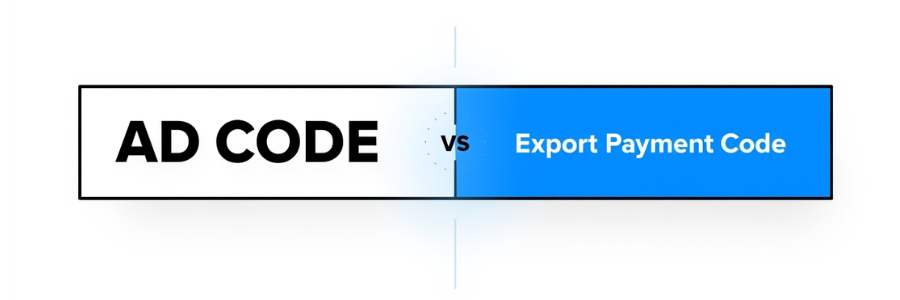Understanding the Compliance Risks of Not Registering Your AD Code
Overview
The authorized dealer (AD) code is a paramount document for exporters who deal internationally. To gain global market access and faster customs clearance, the export businesses are required to register their identity. In the same way, the 14-digit AD code defines the identity for exporters. On the other hand, the AD code registration is not just a formality but a key compliance requirement. Adherence to the RBI’s set rules and regulations is crucial. However, failure to register the AD code on ICEGATE to export goods may result in the exporter facing compliance risks and legal penalties. Through this guide, you will explore why understanding the compliance risks is important and how to overcome these challenges with AD code bank account registration.
1. Why AD Code Registration with a Bank Matters?
The exporters who deal in international trade don’t receive the foreign remittances directly. Their first step is to meet the RBI’s authorized banks’ guidelines and laws. In addition, the AD code for exporters is vital as it facilitates the smooth customs clearance and enables exporters to receive payment in foreign currency. Apart from it, they can also claim the export-supported benefits and schemes. In India, the Reserve Bank of India (RBI) certifies the banks that can negotiate in foreign dealings. These authorized banks issue the 14-digit AD code to exporters who deal in foreign exchange.
2. Regulatory Bodies Involved—DGFT, RBI, Customs Department
The supply chain of AD code bank account registration completes in a loop, which includes the roles of DGFT, RBI, and the customs authority. Each work is different, but they all link with the same purpose. Here is the breakdown of all involved regulatory bodies and their role in the AD code registration process:
2.1 Reserve Bank of India (RBI)
As the central bank, the RBI plays a supervisory role during the AD code registration process. The major roles performed by RBI are
- It authorizes the specific banks to deal in foreign exchange.
- To scrutinize the flow of foreign currency, the RBI mandates the compulsory AD code registration.
- RBI is also functional in controlling the Export Data Processing and Monitoring System (EDPMS). This helps to track export transactions.
2.2 Directorate General of Foreign Trade (DGFT)
The role of the DGFT is to formulate and implement export-related rules and laws. It is active for:
- Prior to the AD code, the exporters were required to obtain the IEC number, which is issued by DGFT.
- DGFT sets the compliance and framework for the AD code under which exporters apply to banks. It is crucial to note that DGFT doesn’t issue the AD code letter but sets the guidelines.
- Framed by the DGFT, the exporters can access the export-supported benefits and schemes.
2.3 Customs Authority
Exporters are required to pass the requirements of the customs department before shipping goods. The customs authority verifies the bank details of exporters with an AD code and clears the goods. The major roles of customs authorities are
- The customs authority mandates compulsory AD code registration at customs, which can be done through the ICEGATE portal.
- Customs officials verify the registered AD code to ensure legitimacy and to track financial transactions.
- The customs authority links the exporter’s AD code to shipping bills.
3. How is AD Code Registration Part of Mandatory Export Documentation?
The authorized dealer code is a crucial component of the export documents. At the customs, the code is used by exporters for shipping bill filing. Here is a breakdown of the AD code role in export documentation:
- Requirements for Customs Clearance: For the shipping bill filing, the exporters must register the AD code at customs through the AD code. Failure to register the AD code at customs will not allow goods to be shipped.
- Foreign Exchange to Correct Bank: The AD code ensures that the exporters receive the foreign remittances to the correct bank account. The code allows both RBI and exporters to follow the foreign dealings.
- Access to Government Incentives: With the verified proof of the AD code, the exporters can claim the government benefits, including duty drawbacks and other systems.
- Ensures Regulatory Compliance: The AD code is a critical document for compliance under DGFT and customs laws, and it is to comply with the requirements.
4. How does AD Code Link to the Shipping Bill and EDPMS?
The AD code registration for export allows the exporters to file a shipping bill. Once the shipping bill is generated, code links it to EDPMS by providing the exporter’s bank details for transactions. Their combined workflow starts with the AD code. The exporter used the 14-digit authorized dealer code to deal in foreign exchange transactions. When the documents are filed electronically, they contain the information of exporters, including the AD code. The shipping bill is then linked to the RBI’s online system that tracks transactions from start to end.
5. Risks of Not Registering Your AD Code
Registration of the AD code on the ICEGATE is a legal requirement. In case the exporter failed to register the AD code, they face significant challenges, including legal penalties. The major risks of not registering the AD code are
- Blocked Customs Clearance: Without AD Code registration, the customs authority will not clear the goods from ports. It resulted in significant financial loss and impacted the relationship with clients.
- Failure to file a shipping bill: If you do not register the code on the ICEGATE portal for shipping bill generation, the Electronic Data Interchange (EDI) system will block you.
- Loss to Financial Incentives: For the direct export incentives to the bank, the exporters are required to link their accounts to the customs system. This can only be done through the AD code.
- Business Reputation Damage: Failure to meet the requirements of the RBI and customs authority led to a delay in shipment. It impacts the relationship with foreign buyers and creates a negative image in competitive markets.
6. Risk of Penalties or Non-Realization of Export Proceeds without an AD code
Not registering the AD code results in penalties for non-realization of export proceeds. It significantly impacts customs clearance. Under the FEMA laws, if an exporter fails to export proceeds within the set timeline by the RBI, they face significant penalties, which include monetary penalties. According to Section 13 of FEMA-TaxTMI, the exporter might pay up to three times the amount of contravention. If it is not quantifiable, the exporter may pay the Rs 200,000. Without the AD code, the exporter will also not be able to access credit facilities and other financial assistance from the banks.
7. How to Avoid Compliance Risks for Export?
To avoid compliance risks and legal penalties, exporters must apply for AD code registration with their authorized banks promptly. Obtaining the IEC (Import-Export Code) before the registration is mandatory. Once the AD code is issued by the bank, the exporter must register it on the ICEGATE portal. Staying attentive to regulatory updates and new notifications is important to manage requirements.
8. Sum Up | Importance of AD Code Registration for Exporters
The Authorized Dealer (AD) code is the gateway in order to be capable to trade in foreign exchange. Linking a bank account to import-export activities enables exporters to receive foreign currency directly from their linked banks. Since the RBI announced it, the AD Code bank account enrollment is obligatory for all exporters to get a valid 14-digit code with the IEC number. However, failure to register for the AD code might result in significant challenges. These challenges include blocked customs clearance, financial losses, payment delays, business damage, and many more. Start your export-import journey now by obtaining a valid AD code. With expert services from LegalRaasta, you do not have to worry about administrative requirements hurdles. We will assist you with the registration process from step one.
9. Oftentimes Requested Queries
(a) Why is the AD Code mandated by the RBI?
Ans. The Reserve Bank of India (RBI) demands that the bank account be registered under compulsory AD code account registration so that they have regulatory compliance and tracking of foreign exchange transactions.
(b) What is the unique customer identification code of RBI?
Ans. The UCIC, or Unique Customer Identification Code, is a code issued by the banks. As mandated by the RBI, each customer has a UCIC issued by the banks to allow users to catalogue all information regarding a customer’s abilities, associations, and financial situations.
(c) Which certificate is issued by a bank after receiving foreign remittances?
Ans. Once the AD code is registered, the authorized banks issue the Foreign Inward Remittance Certificates (FIRC) to exporters. The FIRC certificate is proof of receiving foreign payment in India.
(d) What are the consequences of non-compliance with customs authority?
Ans. Failure to meet the requirements and regulations of the customs authority, the exporter, or the importer will result in substantial challenges involving reductions in the costs of the goods, possible financial fines, etc. blockage, delay in shipments, and criminal charges.
(e) Which DSC is required for registration of the authorized dealer code on ICEGATE
Ans. For seamless registration on the portal, the exporter must use the Class 3 DSC with a USB token.









